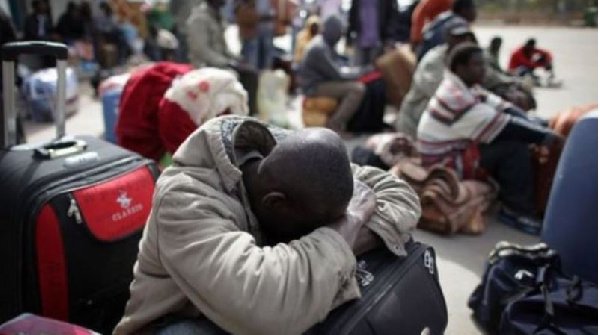Editorial
Don’t leave students stranded

● Government must do well to remit the students
Permit me to comment on the delay in payment of stipends and bursaries to Ghanaian students studying on government scholarship abroad. The complaints keep coming back and it is now more or less an annual ritual.
The latest is that of Ghanaian medical students in Cuba who are lamenting over the non-payment of their stipends for the past seven months.
The students, according to reports, are living on the benevolence of colleagues and friends as assurances from the Scholarship Secretariat have yielded no results.
I have been wondering why successive governments somewhat do not seem to prioritise the needs of students studying abroad.
Studying abroad comes with its own challenges and it can get worse when students run out of cash. We all admit the unfavourable economic conditions in the country but it is not ideal for the government to delay payments for up to seven months.
The Ghana-Cuba students are just one group and I believe trainees elsewhere may be suffering similar fate. If it is, indeed, the case that the these statutory payments cannot be made on time, those in charge should communicate or make the necessary arrangements with the authorities abroad so the students are given some lifeline or breathing space.
I am, by this letter, adding my voice to that of the affected students in Cuba and asking the government of Ghana to act with dispatch.
Frank Bruce,
Achimota-Accra.
Editorial
Don’t use polythene bags to store hot, oily foods
Ghanaians have been advised to refrain from putting hot or oily foods in plastic bags because it poses major health risks.
The warning states that storing hot foods in polythene bags, especially ones that are not made for food storage can cause dangerous chemicals to leak into the food, which could be dangerous for one’s health.
Professor Esther Sakyi-Dawson, an Associate Professor of Food Science at the University of Ghana, gave this warning at a World Food Safety Day celebration in Accra on Tuesday.
With the theme “Food Safety: Science in Action,” this year’s World Food Safety Day focused on the critical role that scientific knowledge plays in guaranteeing food safety and fostering confidence in the food supply.
According to Prof. Sakyi-Dawson, when plastics are heated, toxic substances can seep into the food, contaminating it and raising the risk of several chronic illnesses, including hormone imbalances, reproductive problems, and even some types of cancer, which are on the rise in the nation.
According to estimates from the World Health Organisation (WHO), food contamination causes over 400,000 deaths annually and 600 million foodborne illness cases.
Also, a third of all deaths worldwide are caused by foodborne illnesses, which affect at least 91 million people in Africa each year. Of these, 40 percent are in children under the age of five.
Given the concerning statistics, there is an urgent need to raise awareness that eating hot foods like banku, rice, waakye, or “koko” (porridge) wrapped in plastic is extremely harmful to one’s health.
It is more important to avoid putting food in black plastics, which are not food quality and are typically used for carrying items. Similarly, white polythene should not come into close contact with food.
Despite the warning, Ghanaians have been urged to watch out for food-grade plastics, which are frequently thick, to use for food packing and storage as needed
Since “to be forewarned is to be forearmed” The Spectator advises consumers to put their health first by making the appropriate choices about what they put into their bodies for their own safety.
Editorial
Ensure safety of children during rainy seasonfacilities

Dear Editor,
I write to express concern about the safety of school-going children during these unpredictable weather conditions.
Many children walk long distances to get to school on roads which are mostly poorly drained.
Also, the combination of low visibility, slippery surfaces, and increased vehicular traffic during rains presents real risks to their health and safety.
While I urge local authorities to improve road infrastructure and pedestrian protections around schools, I wish to especially appeal to parents and guardians to take proactive steps in safeguarding their children during this season.
Parents should ensure their children are dressed properly in waterproof or warm clothing, including raincoats, boots, and umbrellas where possible.
Also, parents should accompany younger children to school when it is raining or overly windy, or arrange for responsible adults to do so.
Again, I urge parents to teach their children basic road safety and help them identify the safest routes to school.
In my view, I think it will be prudent to delay leaving the house when rain is heavy or visibility is poor, even if it means arriving at school later and safer.
It is important to remember that safety begins at home. While schools and government agencies have a role to play, parents and caregivers, must not leave the protection of our children to chance.
I believe that with shared responsibility between the state and the family, avoidable accidents could be prevented and ensure every child makes it to school and back home safely.
Abui, Korle Gonno






